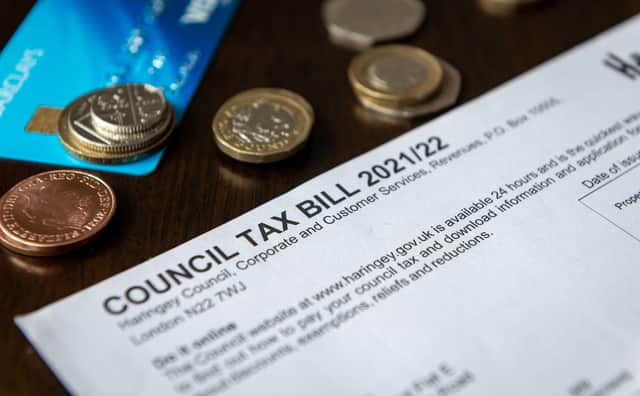What months do you not pay council tax? Two month period no local levy payment is sought, bands and discounts
This article contains affiliate links. We may earn a small commission on items purchased through this article, but that does not affect our editorial judgement.


Households setting budgets for 2022 will be taking into consideration two months of the year when they might not have to pay council tax.
Council tax, an annual charge paid to your local authority for the upkeep of some public services such as rubbish collections, is usually split up over 10 payments.
Advertisement
Hide AdAdvertisement
Hide AdThere is the option to spread the cost over 12 months, however, most households will pay the levy over 10, meaning there are two months where council tax payments aren’t made.
This is when they are…
What is council tax?
Council tax is paid to a local council to cover the costs of services in the area, including the maintenance of public green areas and roads.
The amount of council tax you pay depends on which council tax band your house falls under where you live and the limits set by the local authority in your area.
Priorities in each area can differ from local council to the next, some might need more elderly care for an ageing population, prompting a change in services and payments.
Advertisement
Hide AdAdvertisement
Hide AdCertain services in the community can dictate how much each council requires from its residents to run services. Generally, the bigger your property the more council tax you will pay.
What months do you not pay council tax?
An annual council tax bill tends to be split over 10 months of the year, meaning there are two months when you might not make council tax payments.
These months are February and March.
So when you would normally expect to make a payment to your local council in February and March, that total amount will remain in your bank account.
Households have the option to spread council tax bills over 12 months, meaning smaller payments each month without a break, which can help households to budget further.
To do this, you must apply to your local council.
Who can apply for council tax discounts?
Advertisement
Hide AdAdvertisement
Hide AdCertain professions and personal circumstances can lead to a reduction in council tax payments through the year.
People living alone in a property, for example, qualify for a 25% reduction on the total annual council tax bill, whereas students don’t have to pay any.
Other groups who can apply for discounts to the overall council tax bill include apprentices, student nurses, and carers (50%) and members of the armed forces (100%).
Discounts are not always automatically applied and may need to be registered with councils.
Advertisement
Hide AdAdvertisement
Hide AdOther factors such as a drop in household income could also lead to a reduction in tax paid.
There is also a way to check what council tax band your property falls under, and if this still applies, by requesting a new valuation if you believe there are grounds for appeal.
This typically comes if there have been changes to the property since it was built.
If revalued there is the chance the property could be moved to a lower band, meaning a reduction in your overall council tax bill, or moved up a band, which would be more expensive.
A message from the editor:
Advertisement
Hide AdAdvertisement
Hide AdThank you for reading. NationalWorld is a new national news brand, produced by a team of journalists, editors, video producers and designers who live and work across the UK. Find out more about who’s who in the team, and our editorial values. We want to start a community among our readers, so please follow us on Facebook, Twitter and Instagram, and keep the conversation going. You can also sign up to our email newsletters and get a curated selection of our best reads to your inbox every day.
Comment Guidelines
National World encourages reader discussion on our stories. User feedback, insights and back-and-forth exchanges add a rich layer of context to reporting. Please review our Community Guidelines before commenting.
